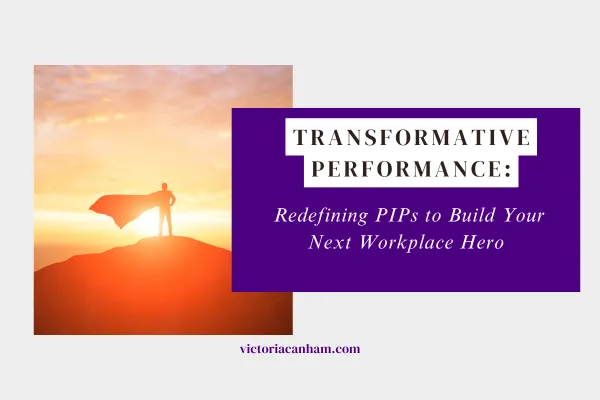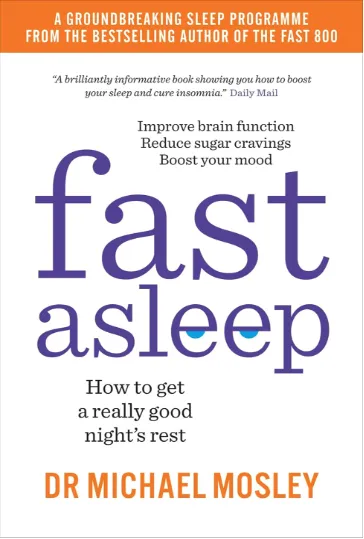Transformative Performance: Redefining PIPs to Build Your Next Workplace Hero
Victoria Canham • 16 July 2025 • 4 min read

"The growth of an organization is limited by the growth of its people." – Pat Lencioni
The Truth & The Cost of the Current PIP Model
Every leader, manager, and employee knows the drill. The phrase "Performance Improvement Plan" – or PIP – often conjures a collective shiver, a knot in the stomach. It's perceived not as a path to growth, but as a euphemism for the beginning of the end; a final, often punitive, step before an inevitable exit. For too long, PIPs have functioned as a corporate death knell, a dreaded formality that serves only to signal a countdown, rather than ignite a comeback.
This pervasive fear isn't without foundation, and its cost to organisations is far more profound than many realise. When a PIP is seen as a dismissal waiting to happen, the ripple effects are devastating. We lose good people – not just those on the plan, but those who watch the process unfold, their trust eroding with each perceived injustice. This culture of fear breeds anxiety, stifles innovation, and damages morale across the entire workforce. Talented individuals, instead of focusing on improvement, begin quietly updating their CVs, ready to jump ship. Managers, too, bear a heavy emotional burden, often feeling like they're administering a bureaucratic execution rather than fostering development. The result? Talent drain, reputational damage to your employer brand, and a significant, often unquantified, loss of institutional knowledge and potential.
But what if this widely accepted reality of the PIP is fundamentally flawed? What if the very tool designed to improve performance is, in its traditional application, actively undermining it? At Victoria Canham Consultancy, we believe it's time to disrupt this narrative. We see a future where the Performance Improvement Plan truly lives up to its name – a powerful catalyst for growth, a strategic investment in human potential, and a pathway to turning struggling employees into your next generation of workplace heroes.
The Psychological Impact – Why Traditional PIPs Fail
The conventional PIP, with its implied ultimatum and often rigid, deficit-focused structure, inadvertently triggers a primal human response: fight, flight, or freeze. Instead of stimulating problem-solving and collaboration, it often plunges individuals into a state of heightened anxiety and threat perception. When faced with such a perceived danger, the sophisticated prefrontal cortex – the very part of the brain responsible for logical reasoning, creativity, and self-regulation – takes a backseat. Instead, the amygdala, our brain’s ancient alarm system, takes over. This makes it incredibly difficult, if not impossible, for the individual to engage constructively, absorb feedback, or genuinely learn and adapt. They are, quite literally, in survival mode.
This immediate biological reaction is compounded by a profound loss of psychological safety. Being singled out for underperformance, particularly in a process perceived as punitive, shatters an individual’s sense of belonging and security within their team and the wider organisation. The fear of failure, public embarrassment, and job loss becomes overwhelming. When psychological safety is eroded, people become risk-averse; they stop taking initiative, asking clarifying questions, or offering innovative solutions. Their focus narrows to self-preservation, which is directly antithetical to the very performance improvement the PIP aims to achieve. This ripple effect extends beyond the individual on the plan; colleagues observe and internalise this erosion of trust, leading to a more cautious, less collaborative, and ultimately less productive work environment for everyone.
Furthermore, traditional PIPs severely damage an individual’s self-efficacy – their belief in their own capability to succeed. If the process feels like a judgment or a foregone conclusion, it reinforces a narrative of inadequacy. Why would someone invest energy into improving if they fundamentally believe the outcome is already decided, or that they simply aren't good enough? This learned helplessness paralyses progress and often leads to disengagement, fostering a self-fulfilling prophecy of failure.
Finally, we cannot overlook the immense burden placed upon managers. Often ill-equipped and uncomfortable with difficult conversations, they are frequently tasked with administering these plans, which feel less like coaching tools and more like precursors to dismissal. This emotional strain impacts their ability to genuinely support and empower their team members. Their discomfort can manifest as awkwardness, a lack of consistent follow-up, or even avoidance, further isolating the employee on the PIP and cementing the negative perception of the process for all involved.
The Victoria Canham Consultancy Reframe: PIPs as Strategic Development Tools
The pervasive negative narrative surrounding Performance Improvement Plans is not inevitable; it’s a consequence of their misapplication. At Victoria Canham Consultancy, we advocate for a radical, yet profoundly logical, reframe. We believe the PIP, when wielded correctly, is not a disciplinary hammer but a powerful strategic development tool – an investment in human capital designed to cultivate, rather than curtail, potential.
For us, the "I" in PIP stands for Improvement and Investment, not Inquisition or Imminent Termination. This fundamental shift in perspective transforms the process from a punitive measure into a collaborative journey. Our approach repositions the PIP as a structured, supportive framework designed to genuinely help an employee bridge a performance gap, providing them with the clarity, resources, and accountability needed to succeed. It's about diagnosing the root cause of underperformance – be it a skills gap, a lack of resources, unclear expectations, or even a mismatch in role – and then providing a tailored, empathetic pathway forward.
This means the process must be proactive, not reactive. A PIP should never be the first time an employee learns about significant performance concerns. Instead, it is an escalation of a continuous, ongoing dialogue around performance and development. It becomes a formalised extension of regular feedback, coaching, and support, applied when earlier, less formal interventions haven't yielded the necessary improvements. This strategic integration ensures that the PIP is perceived as a logical, supportive step in an employee's development journey, rather than an abrupt, out-of-the-blue ultimatum.
Crucially, our reframe insists that the process is collaborative, not punitive. The employee is not a passive recipient of a directive, but an active participant in crafting their own success. This involves joint goal-setting, open dialogue about challenges, and mutual accountability for progress. This shift fundamentally alters the power dynamic, fostering a sense of shared responsibility and commitment. When individuals feel genuinely supported and part of the solution, their intrinsic motivation is ignited, transforming fear into focus and disengagement into dedication.
By embracing this redefinition, organisations can transform a dreaded HR formality into a potent mechanism for talent retention, skill development, and fostering a truly high-performing, people-first culture.
Essential Pillars for a Successful, Human-Centred PIP
Transforming the PIP from a harbinger of dismissal to a beacon of growth requires a deliberate shift in strategy and a commitment to foundational people practices. It's not about tweaking a form; it’s about embedding a philosophy of genuine support and accountability. Here are the essential pillars for building a truly human-centred Performance Improvement Plan:
1. Clear Expectations & A Culture of Continuous Feedback (The Pre-PIP Foundation): The most effective PIP is often the one never initiated. A formal plan should never be the first time an employee learns about performance gaps. Instead, cultivate an organisational culture where expectations are crystal clear from day one, and feedback—both affirming and constructive—is continuous, specific, and delivered with empathy. Regular 1:1s, clear goal setting (ideally using frameworks like OKRs), and ongoing performance conversations prevent issues from escalating to the point of a formal PIP. When a PIP is necessary, it emerges as a logical, agreed-upon step in a well-established feedback continuum, not a sudden, alarming intervention.
2. Exceptional Managerial Capability and Training: The success of a human-centred PIP hinges entirely on the manager. They must transition from being an administrator of a process to a dedicated coach and mentor. This requires significant investment in manager training that goes beyond basic HR policy. Leaders need to be equipped with advanced coaching skills, active listening techniques, and the emotional intelligence to navigate difficult conversations with empathy and candour. They must learn to diagnose the root cause of underperformance (e.g., lack of skill, inadequate resources, motivation, or fit) rather than just observe the symptoms, and then collaboratively build solutions. This commitment to developing managerial capability is a direct investment in the overall employee experience, for both the person on the PIP and the manager themselves.
3. Robust, Tailored Support Systems: A PIP designed for transformation is not merely about monitoring; it's about providing the necessary scaffolding for success. This means offering tailored, tangible support:
✳️ Dedicated Coaching: Regular, structured coaching sessions focused on specific areas of improvement.
✳️ Targeted Training: Access to courses, workshops, or resources to address skill gaps.
✳️ Mentorship: Pairing the individual with a senior colleague who can offer guidance and perspective.
✳️ Clear Success Metrics & Milestones: Jointly agreed-upon, measurable targets and frequent check-ins to track progress and offer immediate course correction.
✳️ Resource Provision: Ensuring the employee has the tools, time, and information needed to perform.
4. Measuring Success Beyond Mere Retention: The true success of a transformed PIP isn't just that an employee didn't leave; it's that they genuinely improved and became a stronger contributor. Measure success not only through the achievement of PIP goals but also through:
✳️ Sustained Performance Improvement: Are they consistently meeting or exceeding expectations on key KPIs?
✳️ Increased Engagement & Proactivity: Are they actively participating, contributing ideas, and taking initiative?
✳️ Positive Peer and Manager Feedback: Qualitative insights into their improved collaboration and impact.
✳️ Team Morale: Has the positive outcome of the PIP bolstered overall team confidence and trust? This demonstrates the tangible ROI of a human-centred approach.
5. The Dignified Off-Ramp Strategy: When the Best Path is a Respectful Parting: While our focus is firmly on transforming performance and fostering growth, we must also acknowledge a candid truth in leadership: not every individual is the right fit for every role, or even for the organisation's culture, regardless of the support offered. Sometimes, despite every genuine effort to turn performance around—comprehensive coaching, tailored development, and consistent support—the gap remains too wide, or the misalignment too fundamental. In these instances, the most responsible and dignified 'off-ramp strategy' for both the individual and the business is a respectful separation.
This isn't a failure of the process or the person; it’s an honest recognition that sometimes, the best path forward for all parties is to seek opportunities that are a better mutual fit. Our approach ensures that even in these scenarios, the process is handled with utmost integrity, empathy, and preserves the individual's dignity. This protection extends to the psychological safety and morale of the wider team and the integrity of the organisational culture, demonstrating that even difficult decisions can be made with humanity and respect.
The ROI of a Human-Centred PIP
The traditional approach to Performance Improvement Plans is a relic of an outdated management philosophy – a reactive, fear-based mechanism that ultimately costs organisations far more than it saves. By clinging to it, businesses inadvertently sabotage their own talent pipelines, erode trust, and cultivate cultures of anxiety rather than high performance.
But as we at Victoria Canham Consultancy demonstrate, there is a transformative alternative. By redefining PIPs as strategic growth catalysts, organisations unlock a profound return on investment that extends far beyond individual performance metrics:
✳️ Retained & Re-engaged Talent: You retain valuable employees who might otherwise have been lost, turning them into highly skilled, loyal, and motivated contributors.
✳️ Stronger, More Resilient Culture: You build a foundation of psychological safety, trust, and genuine support, where employees feel valued and know that their development is a priority. This fosters an environment where innovation thrives and people are willing to take risks.
✳️ Enhanced Employer Brand: Your commitment to human-centred performance management becomes a powerful differentiator, attracting top-tier talent who seek workplaces that truly invest in their people's growth and well-being.
✳️ Increased Productivity & Innovation: When individuals feel supported, empowered, and safe to learn and grow, their engagement soars, leading directly to improved productivity, problem-solving, and creative output.
✳️ Empowered Leaders: Managers transform from reluctant disciplinarians into confident coaches, truly equipped to lead their teams to new heights of performance and collaboration.
It’s not about 'being nice'; it's about being strategically brilliant. It's about recognising that your people are your greatest asset, and investing in their growth – even when facing performance challenges – yields exponential returns. By embracing Transformative Performance through a human-centred PIP model, you're not just improving individual metrics; you're cultivating your next generation of workplace heroes and building a truly exceptional, future-ready organisation.
Ready to Transform Your Mid-Level Leadership?
Ready to redefine performance and cultivate a thriving culture?
If your organisation is ready to move beyond outdated, fear-based PIPs and embrace a strategy that genuinely transforms talent and drives sustained performance, Victoria Canham Consultancy is here to help. With our unparalleled expertise in performance, EX, and culture change, we can guide you in implementing human-centred strategies that foster growth, build psychological safety, and turn challenges into opportunities for your team and your business.
Visit us at https://victoriacanham.com to explore our services or schedule a consultation today. Let's work together to redefine performance and build your next workplace hero.
🔻
I'm Victoria Canham, and I don't just talk about the future of Employee Experience; I'm building it, right now, with leaders like you. For years, I've been on the front lines, navigating the messy, exhilarating truth of what makes employees tick. I see the anxiety AI sparks, but more importantly, I see the amazing human potential it creates for those brave enough to lead differently. You've just read how I think, how I cut through the noise, and how I deliver actionable strategies that don't just calm the panic but transform your workforce into a powerful force. If you're ready to stop reacting to change and start shaping a truly indispensable employee experience, then we need to talk. Because, quite frankly, I'm not just good at this – I'm exactly what your organisation needs.
Follow me on LinkedIn for more insights on building high-performing teams in 2025.
Comment On This Article
Recommended Reading
Fast Asleep: How to get a really good night's rest by Dr Michael Mosley
A good night's sleep is essential for a healthy brain and body. So why do so many of us struggle to sleep well? In Fast Asleep, Dr Michael Mosley explains what happens when we sleep, what triggers common sleep problems and why standard advice rarely works.
Prone to insomnia, he has taken part in numerous sleep experiments and tested every remedy going. The result is a radical, four-week programme, based on the latest science, designed to help you re-establish a healthy sleep pattern in record time.
With plenty of surprising recommendations - including tips for teenagers, people working night shifts and those prone to jet lag - plus recipes which will boost your deep sleep by improving your gut microbiome, Fast Asleep provides the tools you need to sleep better, reduce stress and feel happier.
We’re not just about overcoming obstacles, we’re about transforming lives.
Book Recommendation
For leaders keen to dive deeper into fostering a supportive, high-performance environment, we highly recommend:

Victoria Canham - Performance and People Strategic Partner
Victoria Canham is an ICF-accredited Certified Professional Coach and the founder of Victoria Canham Consultancy. We are a specialist performance consultancy partnering with senior leaders and HR teams to elevate culture, leadership, and employee experience. Rooted in behavioural insight and change expertise, we diagnose what's truly holding performance back, co-creating practical, strategic interventions that drive sustainable business results and build workplaces that work—for people and performance.
Hang out with us on social media

💸 Your people don’t leave for money. 💣 They leave for culture. 🔧 I fix that. 🏆 Retention & performance strategy that works.
Book a ☎️ | Fix the Leaks
© Copyright 2026 Victoria Canham Coaching | Website built by Me on FEA Create (aff.)
Performance Coaching Reading, London, Berkshire, Oxford | St George's Road, Reading, Berkshire, United Kingdom, RG30 2RL | +44 7377 527 529 | [email protected] Open Monday to Friday 9 am until 5 pm
